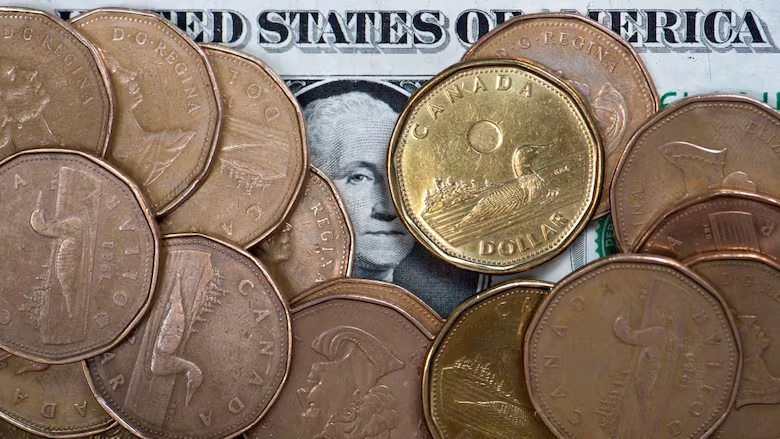Canadian dollar sinks to 11-year low
Market turmoil, decline in oil help push down loonie

The Canadian dollar sank to an 11-year low against the U.S. dollar on Monday, a casualty of the turmoil in stock markets and the continued rout in commodity prices.
The loonie stood at 75.27 US cents by the close of trading, down half a cent on the day.
The last time it closed below 76 cents was Aug. 4, but today's dive took it lower than it's been since August 2004.
- TSX, Dow seesaw up and down after China sparks huge stock selloff
- Canadian oil stocks hit hard on markets
The prospects for the dollar aren't good in the weeks ahead, especially if the U.S. decides to raise rates, said personal finance expert Rubina Ahmed-Haq.
"Their U.S. dollar continues to get stronger and stronger with better economic news, which indicates they might raise rates in September and that could mean a lower dollar ... going forward," she said.
There is renewed speculation that the Bank of Canada will again cut interest rates when it gives a rate announcement on Sept. 9.
Set against a potential rate increase by the U.S. central bank, that will set the stage for an even lower loonie.
Higher prices for imports
For most Canadians, a low dollar means most consumer goods are more expensive — everything from imported produce, to back-to-school clothing to vacation travel outside the country.
The low dollar was supposed to kickstart Canadian manufacturing and benefit Canada's exporting sector.
But, although there are signs exports may be picking up, the low price of oil means less money is coming into the country.
West Texas Intermediate oil sank to $38.09 US a barrel in markets today and other commodities produced by Canada, including gold and copper, also fell.
One of Canada's biggest trading partners, China, is at the centre of the global stock meltdown. That also has led to a grim outlook for the loonie, as China is unlikely to continue to improve its demand for Canadian resources.
The Canadian dollar isn't the only currency linked to a commodities-based economy that's been hit by the crisis.
The South African rand had a record 3.3 per cent drop to 13.14 rand to the U.S. dollar. Vietnam and Kazakhstan have also seen their currencies plunge in response to the devaluation of the Chinese yuan.